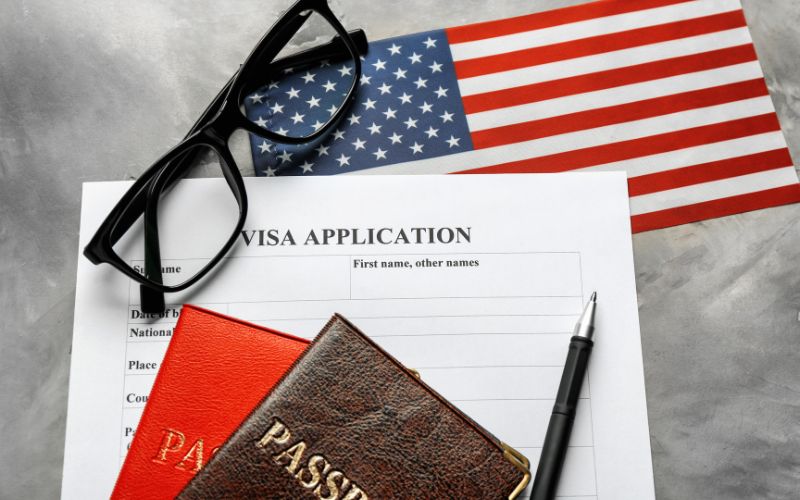Foreign investors in US aren’t just bringing in capital, they’re bringing clout. Over the past decade, these investors have become key players in fueling growth across strategic sectors like retail, technology, wholesale trade, and franchising.
As the U.S. navigates the intersection of economic development, national security, and foreign policy, foreign investment continues to drive innovation and prosperity when implemented consistently with regulatory oversight.
From greenfield investments in Main Street franchises to complex holdings in multinational systems, foreign persons and foreign governments are increasing their U.S. footprint. But make no mistake: these aren’t your average passive investments.
These are high-impact, job-creating, community-anchoring moves—often shaped through legal instruments like mitigation agreements and scrutinized under CFIUS regulations (yes, especially if we’re talking critical infrastructure or advanced technologies like artificial intelligence).
So let’s cut through the noise and unpack why foreign investors make rock-solid franchisees—and what it means for foreign direct investment, national security, and the future of the U.S. franchise economy.
Why Franchising Is a Strategic Win for Foreign Investment

1. Big Output, Bigger Opportunities
Foreign investors are betting on the franchise model, and with good reason. The U.S. franchise sector is forecast to surpass $936.4 billion in output this year, according to the IFA 2025 Franchising Economic Outlook. It is not just economic activity but a magnet for foreign investment dollars seeking high-growth, low-volatility markets.
2. An Open Yet Guarded Investment Environment
The U.S. maintains an open foreign investment environment, but not without guardrails. Entities from foreign companies face restrictions in strategic sectors like telecommunications, defense, and energy.
However, for foreign investors aligned with U.S. interests, franchise ownership represents a viable, low-barrier market entry with fewer national safety concerns.
3. Proven Models Reduce Risk
Franchises offer tested playbooks, minimizing the pitfalls of first-time U.S. business ownership. Moreover, when holding foreign companies accountable to structured systems, you reduce risk exposure—not just for the investor, but the franchisor and the host community.
4. Visa Pathways That Align With Investment Policy
For example, eligible treaty country nationals can invest in and actively manage a U.S. business through the E-2 visa. It’s one of the clearest intersections of direct investment, immigration, and economic growth, especially for developing economies looking to plant strategic roots in the U.S.
What Foreign Investors in US Bring to the Table

Foreign investors are more than checkwriters—they’re strategic partners who bring financial muscle, regulatory know-how, and international experience into the U.S. franchise space. Here’s what makes them stand out.
1. Capital-Backed by Confidence
In 2022 alone, over $177 billion in foreign direct investment (FDI) flowed into the United States. That’s not just a number—it’s a signal. It shows that investors continue to place trust in the strength, stability, and long-term potential of the American market.
And these investors aren’t here to dabble. Many bring serious funding, often far beyond the baseline investment required for an E-2 visa. They’re supporting multi-unit franchise development, reinvesting profits into growth, and riding out market cycles with resilience.
This type of capital doesn’t just create jobs—it provides economic ballast for entire communities, particularly in underserved or rural areas that rely on local business expansion to thrive.
2. Built-in Compliance Capabilities
Let’s be real: running a business in the U.S. comes with red tape. However, foreign investors, especially those from highly regulated home countries, are already used to navigating bureaucratic systems. That means they have the mindset and infrastructure to handle U.S. regulatory compliance from day one.
These investors understand what is at stake, whether it’s environmental impact reports, licensing requirements, or ownership transparency rules under national security laws. Foreign investors are asked to enter mitigation agreements with U.S. regulators in cases involving sensitive sectors, like technology or infrastructure.
These are legal tools that help address national security reviews while allowing the foreign investment to move forward. The best investors treat this not as a burden, but as part of doing business responsibly.
3. Strategic Sector Experience
Foreign investors US often bring serious industry credentials. Many have deep roots in sectors that U.S. policymakers consider strategically important—energy, logistics, advanced manufacturing sector, or digital technology. This experience doesn’t go to waste when entering franchising.
When these investors bring their know-how into U.S. franchise brands that touch related industries, think food supply chains, healthcare logistics, or even AI-driven service platforms, it can create operational advantages.
They help franchise brands adopt global best practices, improve efficiency, and scale sustainably. Provided the right guardrails are in place, their involvement can be a national asset, not a liability.
4. Franchise-Focused, Not a Hostile Takeover
Let’s clear the air: not all foreign investment is equally treated. The U.S. government, through bodies like CFIUS (the Committee on Foreign Investment in the United States), closely monitors deals that could pose risks to national security, especially those involving state-owned enterprises or variable interest entities designed to conceal true ownership.
But the typical E-2 visa investor is the opposite of that. They’re typically individual entrepreneurs or small business owners with clear intentions and transparent ownership structures.
These investors aren’t interested in controlling critical infrastructure or accessing sensitive data, they’re focused on building legitimate, profitable businesses from the ground up. Their goal? To operate successfully, create local jobs, and contribute meaningfully to the communities they serve.
In short, they’re hands-on operators, not faceless financiers or strategic infiltrators.
5. Global Insight, Local Execution
Foreign investors bring a powerful one-two punch: an international business perspective with local commitment. They’ve often operated or partnered with businesses in multiple countries, which gives them insight into emerging trends, consumer behavior, and global market dynamics.
U.S. franchisors can tap into this insight to innovate, expand into new markets, or refine their offerings.
At the same time, these foreign investors in US live and work in the communities where their franchises operate. They hire local staff, support local suppliers, and contribute to local tax bases.
It makes the relationship more than transactional; it becomes transformational. It’s globalization done right: scalable business with human connection at the core.
The Role of CFIUS and National Security
The Committee on Foreign Investment in the United States (CFIUS) exists to review certain transactions involving foreign persons to determine the potential impact on national security.
While most franchise deals fly well below this radar, those involving critical infrastructure, sensitive data, or cutting-edge technologies may warrant closer scrutiny.
CFIUS isn’t out to discourage investment. Its goal is to encourage passive investments while placing new or expanded restrictions, as well as reinforce investment policies where needed. This ensures that foreign capital helps build, not undermine, U.S. interests.
Franchising typically falls in a lower-risk category; however, such transactions may still be flagged if they include elements like tech licensing, access to sensitive geographies, or ownership structures linked to other foreign adversaries.
The E-2 Visa: Legal, Logical, and Lucrative

The E-2 Treaty Investor Visa is the entry point to franchise ownership for foreign nationals looking to do more than park capital. It supports greenfield investments, promotes hands-on ownership, and aligns with U.S. goals of job creation and long-term economic contribution.
Key Benefits Include:
- ~$100K minimum investment, depending on the business
- Renewable as long as the business remains operational
- Fast processing, with many cases approved in months
- Spouses can apply for work authorization
Want to expedite environmental reviews or qualify for local tax credits? States and municipalities love E-2 investors who create jobs and pay into local ecosystems.
Closing the Deal: Why Now?
Foreign investors are an essential part of the American franchise fabric. At a time when geopolitical dynamics, legal instruments, and investment policy are more intertwined than ever, supporting smart, transparent, and vetted foreign direct investment in franchising just makes sense.
Their investments strengthen U.S. brands. Their compliance supports national interests. And their success fuels our economy.
Franchisors should embrace this opportunity, not just for the money, but for the mindset.
Ready to explore your investment options or start your journey toward franchise ownership in the U.S.?
Talk to an experienced E-2 visa consultant like Adam Goldman and start shaping your American business future today.
Invest boldly. Scale smart. Contribute meaningfully.
